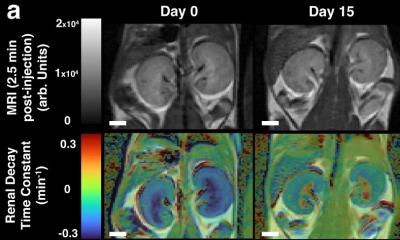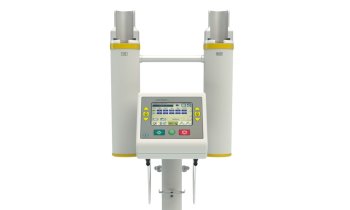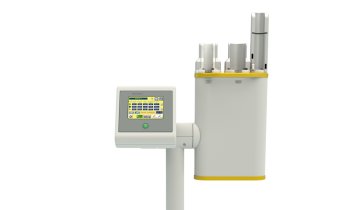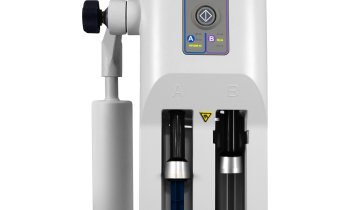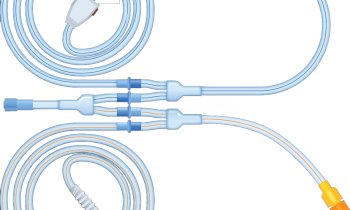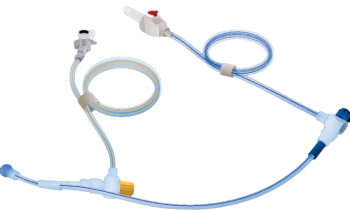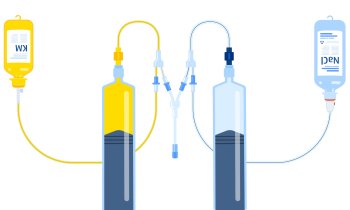© digitale-fotografien – stock.adobe.com
News • Biparametric scan
Prostate cancer screening: two-part MRI is enough, study shows
Removing one step from a three-part MRI scan to diagnose prostate cancer, which could make them quicker, cheaper and more accessible, had no negative impact on diagnostic accuracy, according to clinical trial results led by University College London (UCL) and University College London Hospitals NHS Foundation Trust (UCLH).
The results, presented at the European Association of Urology (EAU) conference in Paris, confirmed the viability of a two-part MRI scan to diagnose prostate cancer and are likely to lead to changes in clinical practice. The trial was funded by Prostate Cancer UK and the John Black Charitable Foundation.
Prostate cancer is the most common cancer in men, with around 52,000 diagnoses and 12,000 deaths each year in the UK. The introduction of MRI scans over the last decade, led by work from UCL researchers, has been the biggest change in how prostate cancer is diagnosed for the past 30 years.
Recommended article

Article • Research, diagnostics, therapy
Focus on prostate cancer
Prostate cancer (PCa) is not only one of the most common, but also one of the deadliest types of cancer in men. Diagnostics are correspondingly sophisticated, from imaging via ultrasound or MRI to various biopsy techniques – often even in combination. Keep reading for current developments in early detection, staging, therapy and research.
A three-part ‘multiparametric’ MRI of the prostate is standard of care in the UK for patients suspected of having prostate cancer, which currently includes a dye injection as its third part. Abnormalities seen on the MRI scan allow targeted tissue biopsies to be taken that can improve cancer detection. A normal MRI result, which occurs in around a third of patients, is reassuring and allows men to avoid an unnecessary biopsy. Increased demand for prostate MRI meant that in 2019, the most recent year for when data is available, only 62% of men in England and Wales who needed a prostate MRI received one. The situation is even worse in many other countries around the world.
The results of the trial indicate that in most patients we are unlikely to miss significant prostate cancer if we stop doing the contrast scan
Clare Allen
A large prostate cancer screening trial involving MRI is expected to be announced later this year, which would likely be offered to healthy men aged 50-65 and if successful, could lead to the introduction of full national screening program, thus further increasing the demand for MRI scans. In this study, called PRIME, cancer specialists from 22 hospitals in 12 countries across the world recruited 555 patients to see whether a shorter, streamlined two-part ‘biparametric’ MRI without the dye injection could detect cancer at the same rate as the full three-part MRI.
All patients underwent the full three-part multiparametric scan. Radiologists then assessed the two-part biparametric scan without the dye, and separately assessed the three-part multiparametric scan with the dye for every patient. A targeted prostate biopsy was done when required to confirm whether or not the diagnosis was correct. Researchers from UCL and UCLH analysed the results and confirmed that the two-stage scan was just as effective at diagnosing prostate cancer. They found that 29% of the patients had important prostate cancer diagnosed by the shorter two-part biparametric scan, which was just as effective as the longer three-part multiparametric scan that also detected 29%.
Dr Clare Allen, a Lead Radiologist on the trial from UCLH, said: “The results of the trial indicate that in most patients we are unlikely to miss significant prostate cancer if we stop doing the contrast scan. The scans will be quicker, cheaper and can be offered to more men. It is critical to emphasise that dropping the third part of the MRI scan is dependent on the first two parts of the scan being of high quality. MRI scanners in this study were optimised before they were used, so we would advise centres wishing to change to the two-part scan to ensure MRI scanners and image quality are optimised first.”
Crucially, this team has also produced guidelines to help hospitals improve the quality of their scans to such an extent that these new, quicker scans can be just as effective as the old ones
Matthew Hobbs
Dr Francesco Giganti, a Lead Radiologist on the trial from UCL Surgery & Interventional Science and UCLH said: “The three-part multiparametric MRI scan has been a game-changer for the diagnosis of prostate cancer, sparing thousands of patients unnecessary biopsies. The third stage of this procedure involves injecting a dye into the patient which can show up brightly on the MRI scan when a cancer is there, but this step takes time, involves an injection and can rarely cause some mild side effects. Being able to make accurate diagnoses without the contrast stage will reduce scan time by around a third, meaning we can offer scans to more men using the same number of scanners and operators. However, it is vital that the scans are of optimal diagnostic quality.”
As well as time savings, a two-stage MRI would generate significant cost savings per scan. In the NHS currently, a three-phase MRI scan costs on average, £273. At £145, a two-phase scan is 47% cheaper. In countries like the US where healthcare costs tend to be much higher, the savings could be even greater.
Associate Professor Veeru Kasivisvanathan, Lead researcher and Chief Investigator on the trial from UCL Surgery & Interventional Science and UCLH, said: “Since multiparametric MRI became standard of care for diagnosing prostate cancer, an important question has been whether we could streamline the scan further in order to make it more accessible, not just in the UK but in a wide range of healthcare settings and models. These results suggest that, providing that MRI image quality is good, we can adopt a shorter two-part biparametric MRI as the new standard of care for prostate cancer diagnosis. These results also make a strong case for prioritising work to optimise MRI quality nationally and internationally. I’m really proud of the team for delivering a complex, international multi-centre trial so quickly. I hope our results will soon be incorporated into clinical practice so that as many men with suspected prostate cancer as possible can benefit. Our vision is that every man who needs a prostate MRI should be able to get a high-quality one.”
Dr Matthew Hobbs, Director of Research at Prostate Cancer UK, said: “It’s rare to see results like this that deliver impact for men so quickly after funding the research. MRI has already revolutionised prostate cancer diagnosis, and we’re thrilled to have funded this study that could further improve diagnosis for men across the globe. These results mean that men could now be given quicker scans, that are just as good, don’t require an injection and are cheaper to perform. This will allow more men to benefit from a better, more accurate diagnosis at a lower cost to healthcare systems not only in the UK, but worldwide. Crucially, this team has also produced guidelines to help hospitals improve the quality of their scans to such an extent that these new, quicker scans can be just as effective as the old ones. It also highlights just how important it is not to rest on our laurels when we make progress, which is why Prostate Cancer UK will continue working to improve new treatments and technologies through investment in excellent research like this.”
Source: University College London
09.04.2024





